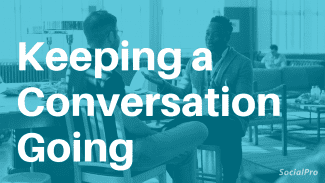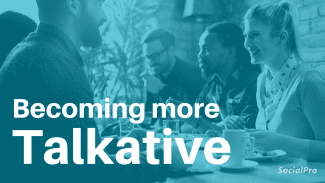I’ve learned the hard way as a helping professional that we can try too hard to help—and our words can backfire. Communicating our point of view with the goal of influencing, persuading, or convincing someone can add to the tension when opinions differ. Most of us have awkwardly realized (the hard way) that being preachy, pushy, or presumptuous just doesn’t work, especially regarding highly charged topics such as vaccinations, racial relations, climate change, cancel culture, and much more. We often feel we are walking on eggshells in these uncertain and unpredictable times mixed with social media-induced extremes and divisions.
As a former rehabilitation counselor who has studied the practices of person-centered communication techniques (thanks to Carl Rogers—to foster a “positive regard” for others), the highly effective approach of Motivational Interviewing, plus the power of a strengths-based view of understanding others, I’ve boiled down three damaging behaviors that strain any conversation. Indeed, three common things we sometimes do—that all start with the letter “p”—can derail a discussion, especially when those parties are anxious to get their point across. These three impediments, the “3 p’s,” come down to being preachy, pushy, and presumptuous.
We can take a close look at each of these unhelpful behaviors and find alternative ways to replace them. And just for handy reference, we can, instead, use the remedy of three words that start with “r”—being receptive, respectful, and reserved.
Being Preachy
Advice-giving, having the answers, “fix-it” solutions, and expert explanations pose barriers to respectful communication. If we would like to offer advice or a solution from our own experience, we might ask that person for our input (before spouting out our knowledge) after listening fully and allowing the person to speak freely.
Indeed, the definition of “to listen” in the Oxford Dictionary means to “give attention to.” Most of us would like to be heard and given someone’s full attention. This requires being receptive and not distracted with our own answers (busting to get it out).
Replace being preachy with being receptive.
We can be open to learning, interested in that person’s experience, willing to listen to that person’s story. Even if we disagree, or find their point of view to be unfounded, remember: People are starving to be heard and “listened to.” Receiving their message does not mean agreeing with their message. Receptivity certainly requires empathy, allowing ourselves to feel their struggle and effort as they try to communicate. We can at least show them we care with our receptivity.
So, without sounding too preachy myself, I humbly offer the approach of keeping open and receptive when encountering other people’s opinions. I believe that we can learn from each other even if we strongly disagree. We might also use a reflective listening skill by echoing that person’s point so that they know we are listening and that we care enough to completely hear their message.
Being Pushy
Everyone knows what it feels like to try to have a conversation with a person who pushes and imposes their opinions without any sign of appreciation for your own. It is disrespectful and terribly frustrating. Even if both parties believe they are right—forcing your way never works, and often turns tense and argumentative.
Replace being pushy with being respectful.
When we have differences, it makes a world of difference to respectfully disagree. Respectful means allowing that person the right to have an entirely different opinion. It may sound easy to simply be respectful, but true respect always involves recognizing the dignity of that person who is trying to reach you.
Being Presumptuous
It seems that the more we live inside our own bubbles (in our heads, in our groups, in our information feeds, on our screens) the more we presume truths about each other. It troubles me that social media has pushed us into identifying with instant definitions, brands, messages, and reactions through images, gestures, or certain (trigger) words. We’ve become conditioned to jumping to conclusions too quickly and ruthlessly. It is no surprise that we instantly make assumptions about one another in our conversations—and this can be disastrous to finding solutions, making plans, coming to agreements, understanding each other, or building a relationship. In short, we think we know everything about how that person ticks, and have that person pegged. But sadly, this presumptuous attitude destroys our chances of understanding one another.
Replace being presumptuous with being reserved.
Instead, it is more helping to take a reserved approach by slowing down, politely holding back a bit, and reserving our judgment. By being reserved, we can be patient, more thoughtful, giving the conversation time to unfold more naturally.
It can be helpful to look closely with this table to see how these behaviors all compare with each other:
| Preachy | Receptive |
| There’s a great support group you should go to. | I think I hear what you’re saying—you feel stuck, right? |
| I know a lot about your problem, and I think you… | What do you think about…? |
| Pushy | Respectful |
| I am right. | It sounds like you’ve been through an awful lot, and I respect that. |
| I know more about this than you do. | You make a good point. |
| Presumptuous | Reserved (Humble) |
| I’ve been through the same thing, and you need to… | I can only imagine what you’re going through. |
| You’ve always been too… | What is it like for you? |
| You tend to be… | Is this a whole new experience for you? |
| People like you need… | I’d like to learn more about what you’re saying. |
On a final note, I’ve offered these communication tips from both professional and hard-earned (often painful) personal experiences. I tend to remember things better with simple cues such as replacing the “3 p’s” with the “3 r’s.” In the midst of a tricky spot in a conversation, I cue myself to watch out when I find myself bursting to offer my tips (being preachy) or forcing my point (pushy) or making assumptions about that person (presumptuous).
It takes a lifetime of practice–and probably more than a lifetime—to communicate well with people who have seriously different values, beliefs, or behaviors. And that is why I deeply believe that no one has the last word on how to eradicate our human mistakes in communication. It takes great courage as well as great humility to try to muddle through our differences.
Image: Photography PEXELS, Liza Summer













I find, with many people these days, that when I converse from the standpoint of what you mention as receptive, respectful, and reserved (these techniques have also been widely defined as empathy), the conversation almost invariably remains with and about the other person. Occasionally, the other person will ask me about my own thoughts, or day, or etc., but it often comes across rather performatively, as if the person becomes “aware” that they have been doing most of the talking, and then recall that they are supposed to indicate an interest in the person they are talking to (which is very different from listening). Like, once they’ve themselves asked some kind of “appropriate” question, they’ve done their polite bit of empathy (without caring too much about the answer), and are simply awaiting their turn to “feel heard” some more.
There is a difference between “feeling heard” and actually *being* heard.
End result: one-sided “relationships” with people who may hang the label “friend,” but in fact is simply “someone you know.”
I will also note that this phenomenon seems to have increased over the past couple of decades, possibly (I would say likely) as a result of the increasing internet consumption. Just, wow.